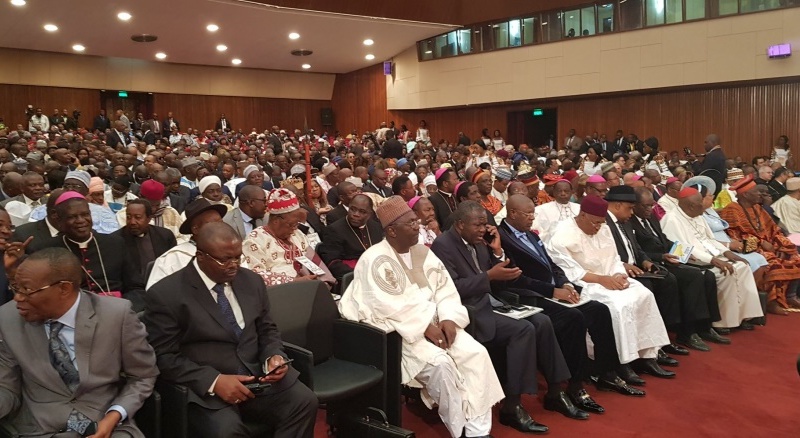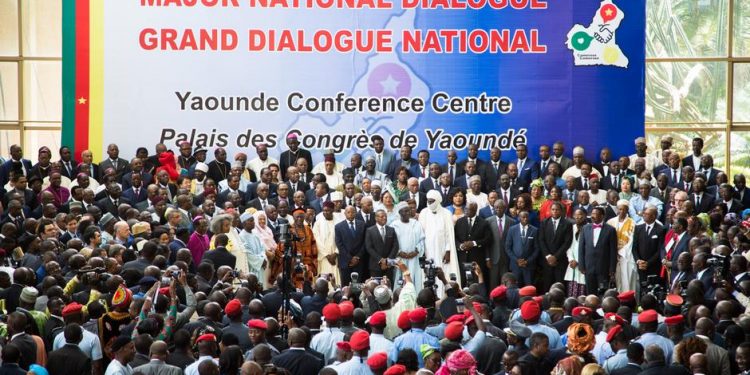September 30, 2022 was the third anniversaty of the Major National Dialogue(MND),which the Government of Cameroon initiated to end the crisis in the north west and south west regions of the country. Initiated in the midst of a degenerating armed conflict situation in the two English Speaking regions of the country, observers across the spectrum had reacted differently in the way the dialogue was conducted and the results it has archived three years down the line.
While government maintains peace is around the corner, observers have been quick to poit out that a new “war economy” is emerging. Drivers of this economy are making profit from the war and violence thereby undermining any effort that is geared at ensuring a return to normalcy.
On the occasion of the third anniversary of the dialogue ,the Prime Minister and Head of Government ,Chief Dr Joseph Dion Ngute made significant pronouncements on the road covered by the dialogue so far.
Gradual Return To Normalcy.
In a public statement ,Chief Dr Joseph Dion Ngute pointed out that agricultural activities in both regions are beginning to pick up, inter -urban transportation is more fluid and schools are reopening their doors gradually after being shut down for years, in some cases.
This assertion comes to add to what the government insists are a package of measures that have already been put in place to resolve the fracas. Amongst these measures are the creation and putting in place of the National Commission for the Promotion of Bilingualism and Multi-Culturalism, the setting up fo a Common Law Section at the National School of Administration ,the enactment of Bilingualism legislation, the declaration of a Special Status for the North West and South West Regions, and the putting in place of a National Plan for the Reconstruction of the North West and South West Regions. Further ,the government cites the putting in place of Regional councils ,thereby giving the two restive regions greater autonomy to the two restive regions.
The chairman of the Presidential Plan for the reconstruction of the North West and South West Regions Paul Tasong has been quick to add that through the programme ,government has achieved a lot.
Tasong points out that regarding the promotion of social cohesion, over 800 documents have been reconstituted,60 peace influencer trained,12 socio-cultural events organized and five multi purpose centres constructed and equipped.
Regarding the rehabilitation of essential infrastructure,19 water points have been constructed,30 schools and 20 health centres rehabilitated, with several centres constructed. With regards to revitalizing the local economy,2400 farmers and fishermen have been provided agricultural material ,five community credit unions rehabilitated ,and 120 entrepreneurs provided with start u capital.
Also ,during a recent press outing, Fai Yengo Francis ,the Coordinator of the National Disarmament, Demobilization and Reintegration programme created by a presidential decree in 2018 holds that the centres in both the orth west and south west regions are disarming hundreds of young fighters as well as rehabilitating and empowering them.

Of Skeptics And The War Economy.
Despite these significant strides towards restoring peace in the two restive English speaking regions, skeptics still hold that the Major National Dialogue did not offer anything. This is a view held by Dr Nick Ngwanyam ,surgeon and social critic.
According to him the Major National Dialogue was just a gathering of familiar militants of the ruling CPDM party and their acolytes with nothing serious to write home about. He maintains that there is need for a fresh and more inclusive dialogue that will involve all parties in the conflict.
Nji Lucas,a civil society activist holds that the Special Status was empty and did not introduce anything new to the way things were happening in the two regions before the crisis and after the crisis erupted in 2016.He opines that the content of the special status need to take into consideration some of the historical problems of the former southern Cameroons that led to the crisis.
This view is consistent with that f Human Rights Lawyer, Barrister Nkongho Felix Agbor who maintains that beyond being empty, the Special Status and the Major National Dialogue did not take into consideration the root causes of the crisis that are embedded in the history of the reunification of the two Cameroons. Without this ,he maintains nothing has been achieved.
Amidst the continuous violence ,killings and kidnaps however ,Tarhyang Tabe, a journalist holds a different view. He thinks the crisis has led to the growth of a “war economy” in which individuals and organizations that are making profit from the violence do not want it to end. So they peddle the views or support ideologies that only go to sustain the war and fetch them huge profits. In the midst of this confusion, he concludes, it is very difficult to put a finger on the new drivers of the conflict which may not be linked to the solutions opted for by the government or the separatists.




